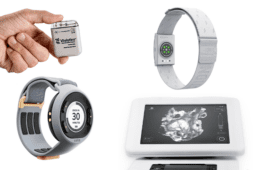Antidepressants, commonly used to treat anxiety, pain and other disorders, may play a role in dental implant failure, according to a new pilot study by University at Buffalo researchers.
The research found that the use of antidepressants increased the odds of implant failure by four times. Each year of antidepressant use doubled the odds of failure.
While these drugs are often used to manage mood and emotions, a side effect decreases the regulation of bone metabolism, which is crucial to the healing process.
For an implant to heal properly, new bone must form around it to secure it in place, says Sulochana Gurung, lead investigator and a doctor of dental surgery (DDS) candidate.
“Antidepressant medication may relieve depression symptoms and help millions of patients worldwide, however, their benefits must be weighed with the side effects. Patients should cooperate with their physician to reach the right balance,” says Latifa Bairam, DDS, MS, an investigator on the study and clinical assistant professor in the Department of Restorative Dentistry in the UB School of Dental Medicine.
“Four of the many known side effects that are reported in the literature are a big concern to us as dentists in regard to oral and bone health.”
Additional side effects of the drug include osteoporosis, a condition in which bones become weak and brittle; akathisia, a disorder characterized by the need to be in constant motion, including the head and jaw; bruxism, or teeth grinding; and dryness of the mouth, all of which affect the implant healing process, says Bairam.
The research, “A Pilot Study: Association between Antidepressant Use and Implant Failure,” was funded by the Student Research Program through the SDM Dean’s Vision Fund.
Gurung will present the findings at the 45th annual American Association for Dental Research conference on March 19. She also presented at the School of Dental Medicine’s 2016 Student Research Day on Feb. 25.
She completed the study under the mentorship of Bairam, Sebastiano Andreana, DDS, MS, associate professor and director of implant dentistry, and Mine Tezal, PhD, DDS, clinical assistant professor in the Department of Oral Biology.
The research began to take shape after Bairam and Andreana, who have previously studied implant failure, noticed that a growing number of their patients reported use of antidepressant medication.
After analyzing data from the medical charts of UB Dental Clinic patients in 2014, the researchers found that of the few patients who experienced implant failures, 33 percent used antidepressants. For patients who did not experience failures, only 11 percent used the drug.
“We decided that the dental community and the world should be aware of this, and that triggered the preparation of the research,” says Andreana. “The difference between 33 percent and 11 percent is quite remarkable and needs further in-depth analysis.”
More than one in 10 Americans over the age of 12 use antidepressants, making it the second most prescribed type of drug in the U.S., according to data from the Centers for Disease Control and Prevention (CDC) and IMS Health.
And the rate is increasing. Antidepressant use has surged 400 percent between the periods 1988-94 and 2005-08, according to the CDC.
The researchers plan to build on the study by retesting their results on a larger scale. For now, they advise those using antidepressants to consult with their physician about the drug’s side effects and alternative methods of managing depression, anxiety or pain.




